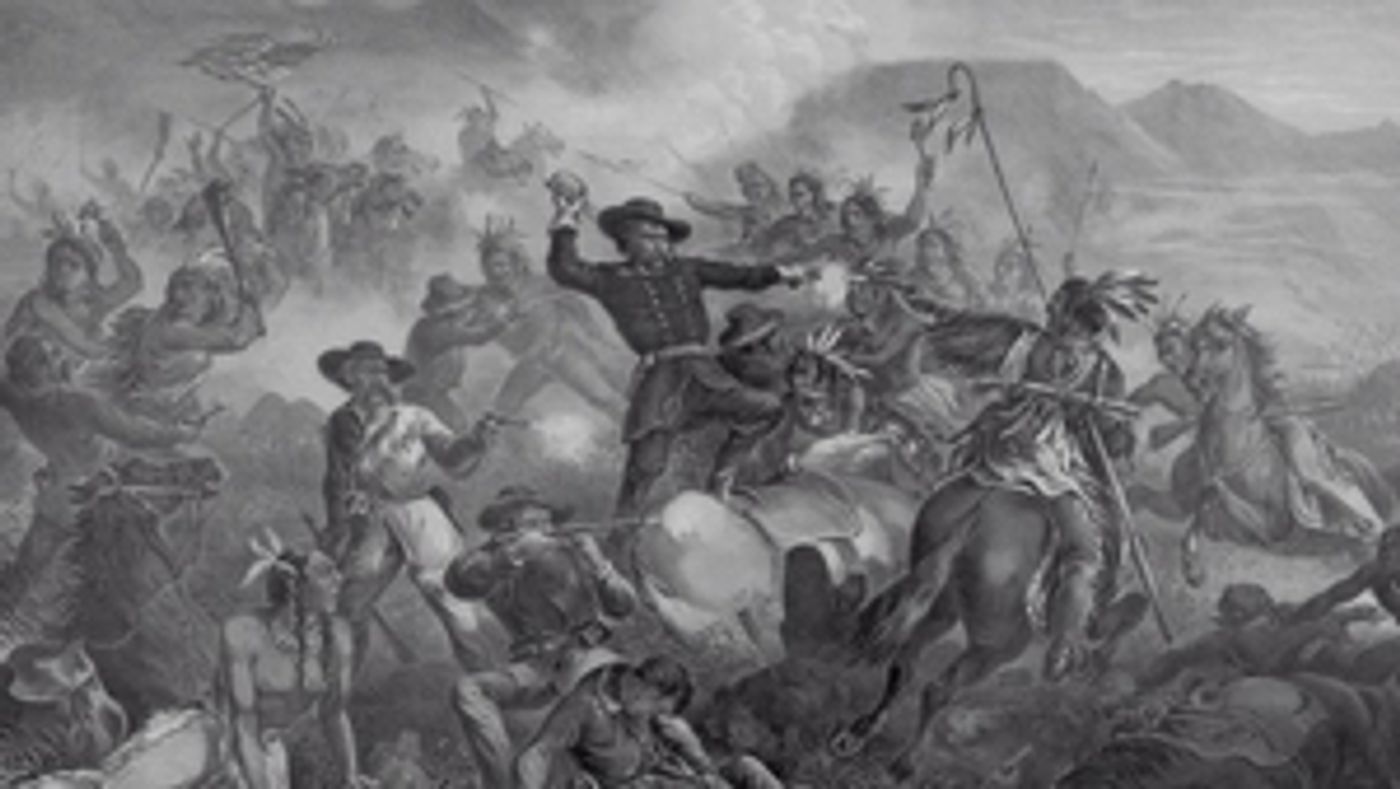Smithsonian Channel Announces New Special BATTLE OF LITTLE BIG HORN

The Battle of the Little Big Horn. Custer's Last Stand. The Battle of the Greasy Grass. An infamous conflict known by many names is one that has been edited, embellished and sensationalized for over a century. On June 25, 1876, Hunkpapa Lakota Chief Sitting Bull and thousands of American Indians were attacked by General George Custer's 7th Cavalry as they camped on the banks of Montana's Little Bighorn River. Vastly outnumbered, Custer's entire regiment was wiped out. What was to follow was a nationwide media storm - but what led to this deadly encounter, and how did history books get it so wrong? BATTLE OF LITTLE BIG HORN premieres Monday, January 13 at 8 p.m. ET/PT on Smithsonian Channel.
BATTLE OF LITTLE BIG HORN explores how the proliferation of the telegraph and burgeoning newspaper industry led to a simultaneous news break across the country. The inaccurate and dramatized reporting resulted in an American public both outraged and captivated; with no white survivors left to tell the tale, a decisive 19th-century conspiracy theory was born. BATTLE OF LITTLE BIG HORN draws inspiration from the Smithsonian's National Museum of the American Indian's exhibition Americans, which highlights the ways in which American Indians have been part of the nation's identity since before the country began, and features interviews with three of the museum's curators - David Penney, Emil Her Man Horses and Cécile Ganteaume. The special also visits the National Museum of Natural History's National Anthropological Archives to examine rare original drawings created by Lakota Chief Red Horse - a pictorial version of his testimony of the events at Bighorn - and notes the obvious absence of the fabled "Custer's Last Stand" image depicted on the battle field.
BATTLE OF LITTLE BIG HORN traces the events leading up to Bighorn - broken treaties, stolen lands and the threat of lost identity at the hands of government initiatives targeting assimilation of the Lakota Sioux and other American Indian tribes. The special uncovers how tabloid news coverage of the battle turned the U.S. Cavalry's bombshell loss at Bighorn into an unstoppable mythos, while fueling stereotyped depictions of the Native American - a Plains warrior wearing a feathered headdress - that persist to this day. Whether celebrating the victors at the Greasy Grass or dissecting the myth of Custer's Last Stand, Bighorn has been stirring emotions in the American public for almost 150 years. It was a pivotal moment in our nation's history and one that serves as an important reminder of ALL THAT we are, and ALL THAT we have lost.
BATTLE OF LITTLE BIG HORN is a Biscuit Factory Production for Smithsonian Networks. Producers for The Biscuit Factory are Molly Hermann and Rob Lyall. Linda Goldman and David Royle serve as executive producers for Smithsonian Channel.
Smithsonian Channel™, a ViacomCBS network, is where curiosity lives, inspiration strikes and wonders never cease. This is the place for awe-inspiring stories, powerful documentaries and amazing factual entertainment, available in HD and 4K Ultra HD across multiple platforms. Smithsonian Channel, winner of Emmy® and Peabody awards for its programming, is the home of popular genres such as air and space, travel, history, science, nature and Pop culture. Among the network's offerings are hit series including Aerial America, America in Color, America's Hidden Stories, Apollo's Moon Shot, THE PACIFIC WAR IN COLOR and Air Disasters, as well as critically-acclaimed specials that include The Green Book: Guide to Freedom, Black Hole Hunters and Princess Diana's Wicked Stepmother. Smithsonian Networks also operates Smithsonian Channel Plus™, a subscription video streaming service delivering over a thousand hours of the Channel's stunning and diverse library of documentaries and series in HD and 4K Ultra HD. Smithsonian Channel is also available internationally in Canada, Singapore, Latin America, the UK and Ireland. To learn more, go to smithsonianchannel.com, or connect with us on Facebook, Twitter, and Instagram.
Videos

